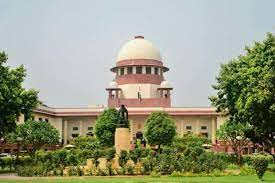
- Supreme Court of India
Hon'ble Supreme Court held "Talaq is manifestly arbitrary in the sense that the marital tie can be broken capriciously and whimsically by a Muslim man without any attempt at reconciliation so as to save it. This form of Talaq must, therefore, be held to be violative of the fundamental right contained under Article 14 of the Constitution of India. In our opinion, therefore, the 1937 Act, insofar as it seeks to recognize and enforce Triple Talaq, is within the meaning of the expression “laws in force” in Article 13(1) and must be struck down as being void to the extent that it recognizes and enforces Triple Talaq".
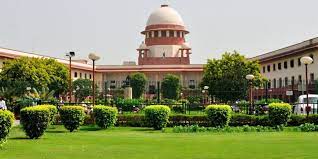
- Supreme Court of India
The Supreme Court has held that an intra-court appeal cannot be filed before a division bench of the high court if a single judge has passed the order in a criminal case
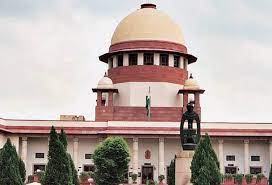
- Supreme Court of India
Bail application shall not remain pending in subordinate court for more than one week and in high court for not more than 2-3 weeks

- Supreme Court of India
This Court has held that a joint disclosure or simultaneous disclosures, per se, are not inadmissible under Section 27 of the Evidence Act. Joint or simultaneous disclosure is a myth, because two or more accused persons would not have uttered informatory words in chorus.
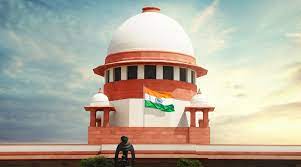
- SUPREME COURT OF INDIA
SEEKING VOTES ON GROUND OF RELIGION IS UNCONSTITUTIONAL -
Hon'ble Supreme Court ban on seeking votes over religion, race or caste. Held- “religion, race, caste, community or language would not be allowed to play any role in the electoral process”. Section 123(3) of the Representation of the People Act defines as “corrupt practice” appeals made by a candidate or his agents to vote or refrain from voting for any person on the ground of “his” religion, race, caste, community or language. The Constitution forbids state from mixing religion with politics,” ruled a seven-judge constitution bench headed by Chief Justice T.S. Chief Justice Thakur, judges S.A. Bobde, Adarsh Kumar Goel and L. Nageswara Rao and Madan B. Lokur formed the majority opinion. Three judges—Adarsh Kumar Goel, U.U. Lalit and D.Y. Chandrachud—argued against it maintaining this was the prerogative of Parliament

- Supreme Court of India
NATIONAL ANTHEM CASE- it is the duty of every person to show respect when the National Anthem is played or recited or sung. Apex court passed following directions -
(a) There shall be no commercial exploitation to give financial advantage or any kind of benefit.
(b) There shall not be dramatization of the National Anthem and it should not be included as a part of any variety show.
(c) Not be printed on any object and also never be displayed in such a manner at such places which may be disgraceful to its status and tantamount to disrespect.
(d) All the cinema halls in India shall play the National Anthem before the feature film starts and all present in the hall are obliged to stand up to show respect to the National Anthem.
(e) Prior to the National Anthem is played or sung in the cinema hall on the screen, the entry and exit doors shall remain closed so that no one can create any kind of disturbance which will amount to disrespect to the National Anthem. After the National Anthem is played or sung, the doors can be opened.
(f) When the National Anthem shall be played in the Cinema Halls, it shall be with the National Flag on the screen.
(g) The abridge version of the National Anthem made by any one for whatever reason shall not be played or displayed.

- SUPREME COURT OF INDIA
BONE OSSIFICATION TEST MEDICAL IS NOT CONCLUSIVE PROOF OF AGE- Medical evidence as to the age of a person though a very useful guiding factor is not conclusive and has to be considered along with other circumstances. Bench said "We hold that ossification test cannot be regarded as conclusive when it comes to ascertaining the age of a person"
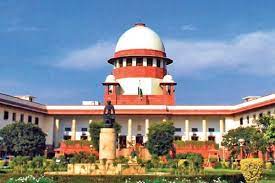
- SUPREME COURT OF INDIA
CONVICTION DESPITE WITNESS TURNED HOSTILE-
it is held by Apex court "In my fieldwork experiences, witnesses become “hostile” not only when they are directly implicated in a case filed by the police, but also when they are on the side of the plaintiff's party. During the often rather long period that elapses between the police investigation and the trial itself, often observed, the party who has lodged the complaint (and who becomes the main witness) can irreparably compromise the case with the other party by means of compensation, threat or blackmail."
The State has a definite role to play in protecting the witnesses, to start with at least in sensitive cases involving those in power, who has political patronage and could wield muscle and money power, to avert trial getting tainted and derailed and truth becoming a casualty. As a protector of its citizens it has to ensure that during a trial in Court the witness could safely depose truth without any fear of being haunted by those against whom he had deposed. Every State has a constitutional obligation and duty to protect the life and liberty of its citizens.
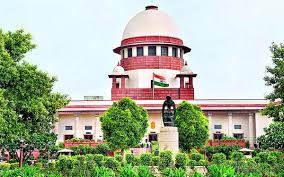
- Supreme Court of India
Sex Workers cannot lodge a sexual assualt (Rape) complaint against their customers if they refuse to pay money. Further held though the evidence given by a woman alleging rape must get importance from the trial court, but it could not be taken as 'GOSPEL TRUTH'
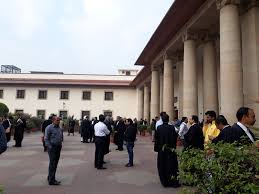
- Supreme Court of India
IMPORTANT SUPREME COURT JUDGMENT-
GOLDEN PRINCIPLES IN CASE OF CIRCUMSTANTIAL EVIDENCES-
1.The circumstances from which the conclusion of guilt is to be drawn should be fully established.
2. The facts so established should be consistent only with the hypothesis of the guilt of the accused, that is to say, they should not be explainable on any other hypothesis except that the accused is guilty.
3. The circumstances should be of a conclusive nature and tendency.
4. They should exclude every possible hypothesis except the one to be proved and;
5. There must be a chain of evidence so complete as not o leave any reasonable ground for the conclusion consistent with the innocence of the accused and must show that in all human probability the act must have been done by the accused.
